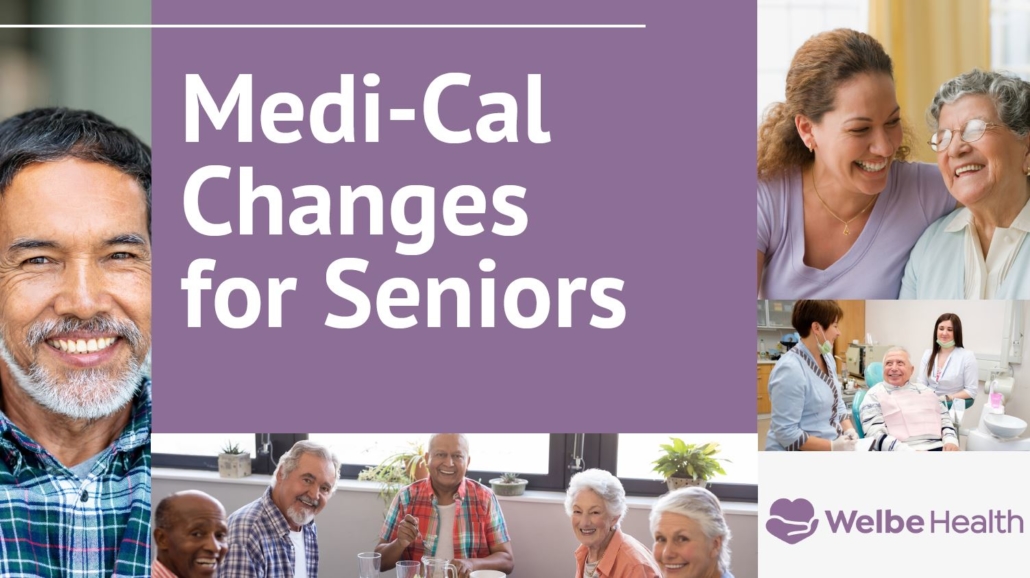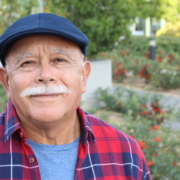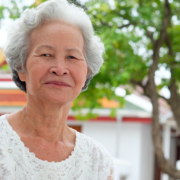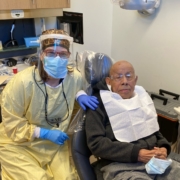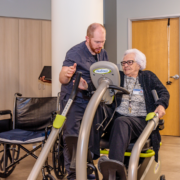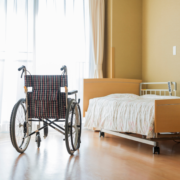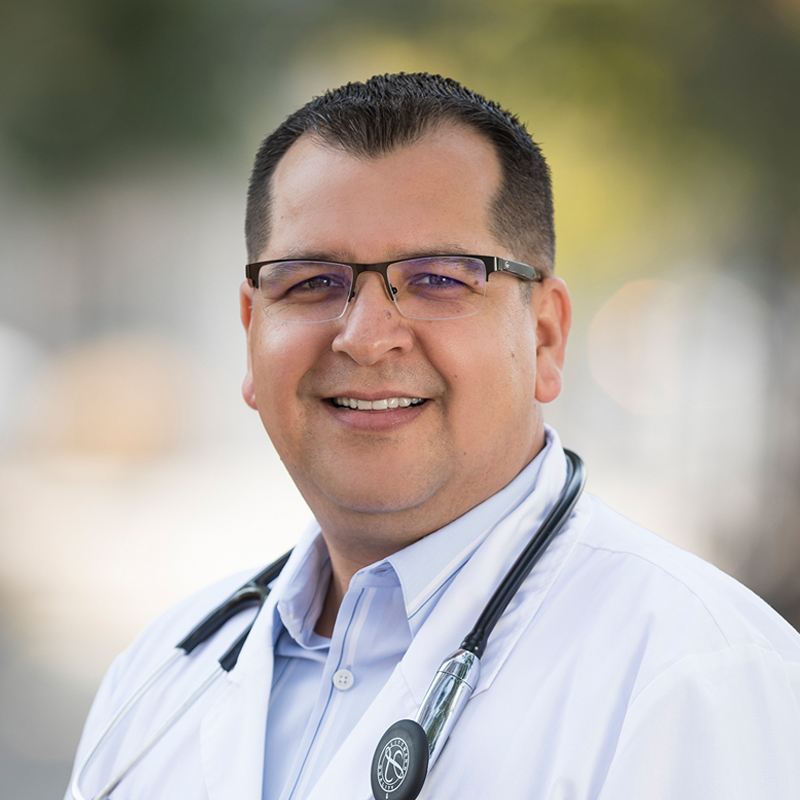At WelbeHealth, health care and dental care are integrated and coordinated. Once a medical provider does an initial assessment of a senior entering our program, the senior sees our dental team for preventive dental care and any necessary dental treatments.
Lisa Gildea, an RDHAP (Registered Dental Hygienist in Alternative Practice) at WelbeHealth, has made a difference in the lives of many seniors including Florentino, age 92, and his adult daughter and caregiver, Patricia.
A Caregiver’s Experience
Patricia has been delighted with the services WelbeHealth provides for her father, Florentino, especially the dental services and the in-home support they receive from Home Instead Agency—all provided through the WelbeHealth program. Patricia says, “The regular assistance with quality care from WelbeHealth and the Home Instead Caregivers allows me to continue working my full-time career, while still taking care of my father and my home. I cannot emphasize enough how much peace of mind this generates. If I can pull it off, anyone can. Just don’t give up.”
Patricia says, “Lisa Gildea has been extraordinary with my father. I have never experienced dental customer service like Lisa provides through the PACE program. Lisa spends significant time with me on the phone both before and after each of my father’s dental appointments. She assesses his situation, provides me with the supplies we need for his dental care, and answers all my questions.”
For Patricia, whose father still has a beautiful full set of teeth, it is important to help maintain his teeth now that he can’t do it for himself. Patricia says, “My father spent a lifetime taking care of his teeth, and now it is my turn to help keep them in good condition. As a caregiver, it is important to stay optimistic and tenacious. We have to persevere in finding ways to advocate and take care of ourselves and the elderly in our family and community.”
Patricia continues, “WelbeHealth sets up all his appointments, provides Lisa for his dental care, and picks him up for his appointments. They don’t give up on their geriatric patients. My father really responds to Lisa. She is creative with how she cleans his teeth, is kind, nurturing, and he picks up on that.”

Lisa Gildea and Florentino in a WelbeHeath center
Medical and Dental, all Under One Roof
Lisa Gildea talks about WelbeHealth’s integrated medical and dental services to seniors at community presentations in the Stockton and Modesto areas of California.
The presentations cover the services that WelbeHealth provides to qualifying seniors, with a special focus on its dental services. In each presentation, Gildea provides supplies for tooth brushing and flossing, and dental education such as diet, how to brush teeth and how to floss.

Supplies and education for seniors at an outreach event
Gildea explains to senior groups that a WelbeHealth dentist typically handles the first dental visit. The dentist takes a set of x-rays, does an exam, and then explains the cleaning needs and treatment plan to the dental hygienist.
Gildea says, “I do an assessment, a cleaning, fluoride treatment, and put each senior on a routine maintenance and preventative care plan.” She adds, “At WelbeHealth, our goal is to keep seniors as healthy as possible while living in their own homes and communities.”
Gildea says there are advantages to having medical and dental all under one roof. “I can quickly talk to other providers if the senior needs a prescription, for example. Everybody understands what the senior needs—that’s part of the all-inclusive nature of the service.”
WelbeHealth transportation brings seniors to the day center for their appointments. Gildea says, “Many seniors don’t have their own transportation, so it is all pre-arranged according to their needs. If a senior comes in for a cleaning, they can also go to other appointments at the center that day, such as a routine medical check-up, lab work, or physical therapy. This minimizes the number of trips and separate appointments needed.”

Lisa Gildea educates seniors at community outreach events.
The Importance of a Healthy Smile
A healthy smile can boost seniors’ confidence, keep them eating nutritious foods, and promote good health. Gildea says, “Many seniors have worked an entire lifetime and haven’t had access to dental care. I love providing seniors access to dental care to bridge that gap. At WelbeHealth, I have the flexibility to do what is best for the individual.”
Gildea continues, “Helping a senior go from poor oral health to good oral health is very rewarding. And it makes my job feel so much bigger than just doing dental cleanings. I teach seniors about the importance of good daily dental habits and routine dental care. The results are incredible and valuable because our general health is connected to our oral health.”
Gildea says she also enjoys helping seniors go from feeling nervous or fearful about their dental hygiene visit to being comfortable and excited about their visits.
COVID-19 Considerations
With COVID-19 still active in our communities, seniors are often concerned about safety. Gildea says, “WelbeHealth is very cautious about COVID-19, and has good safety measures in place. The pandemic also highlights a growing need to see seniors at home. When needed, I can visit seniors safely where they live.” Gildea takes a portable dental unit to home appointments with all the comforts of the dental office, and she has mobile X-ray equipment.
Gildea says, “Some seniors are in memory care and cannot get to the dental suite, so going to them can be the best option for their dental care.”
Comprehensive Care
WelbeHealth is unique, as it serves as both the payor and the provider. There are no outside restrictions on services such as dentures, extractions, crowns, or fillings. The dental hygienist can do deep cleanings and create maintenance schedules that fit the individual’s needs. The dentist and dental hygienist collaborate and share information to create a treatment plan that best accommodates the patient.
Seniors enjoy the benefits of personalized and coordinated medical and dental care and have access to activities and socialization along with meals at the center. Depending on the need, Gildea will see between four and six seniors in a typical day. Gildea says, “WelbeHealth allows me to take my time with each senior, and to see them as often as I feel is necessary. This setting gives me the freedom to make decisions based on what is best for the individual.”
